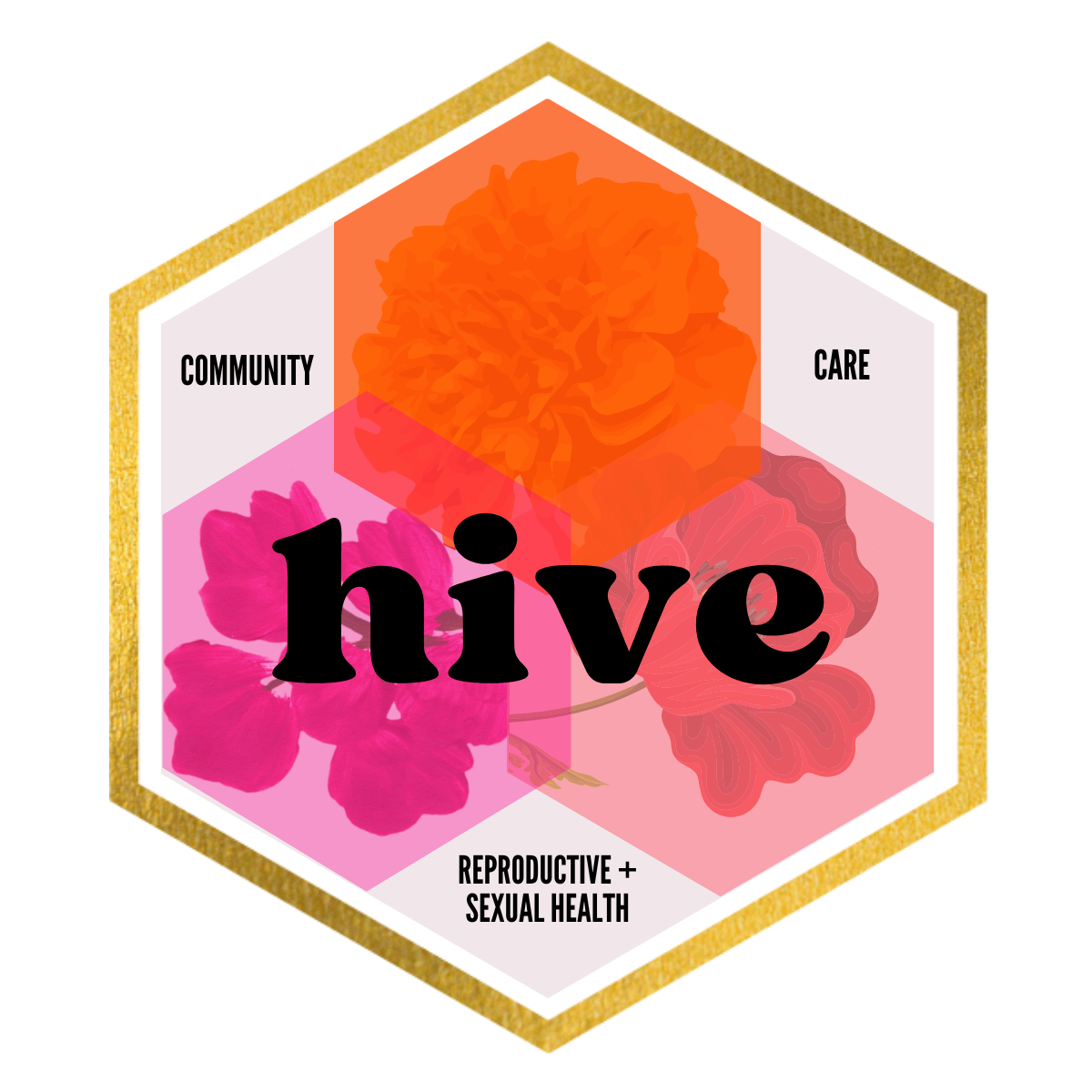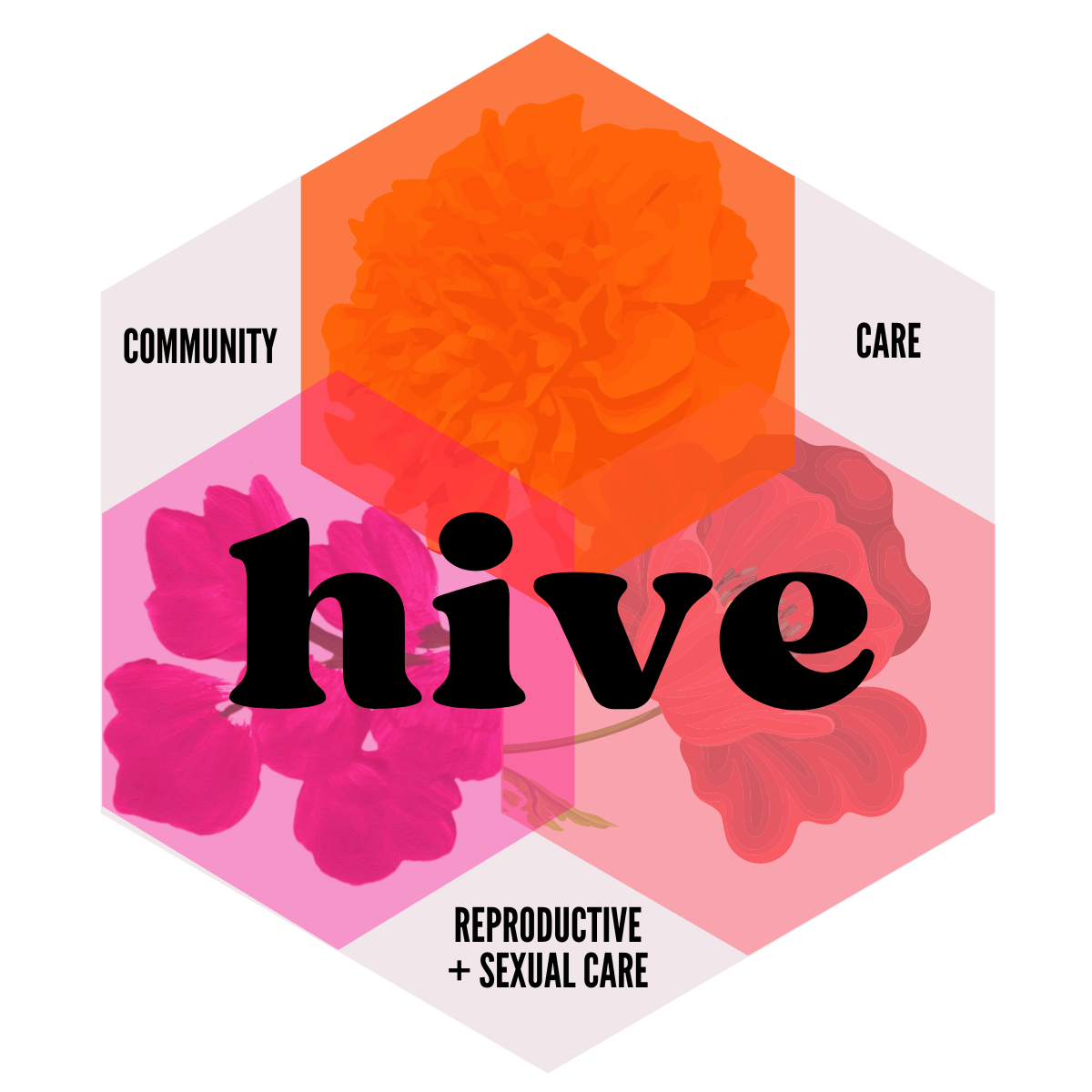Advancing Reproductive Justice for Families Affected by HIV: A Call to Action
Originally posted on The Body Pro - May 9, 2024
As the women of color leaders of HIVE Clinic at San Francisco General Hospital, we have dedicated ourselves and our organization to supporting communities affected by HIV and honoring their family-building journeys through an intersectional lens informed by anti-racism, abolition, and reproductive justice frameworks.
To us, that means recognizing that HIV health inequities clearly reflect the deeply harmful effects of systemic racism and its intersections with other forms of oppression including sexism, homophobia, and HIV-related stigma.
People living with HIV seeking prenatal care find themselves in a system that has committed egregious human rights violations against communities affected by HIV, such as forced sterilization and unethical clinical trials. Correcting this requires the field to acknowledge and reflect on the harm that has taken place and continues to take place in the modern machinations of our health care institutions.
This includes respecting the science demonstrating that having an undetectable viral load equals an untransmittable status (#U=U), which applies to condomless sex, conception, pregnancy, and chest/breastfeeding.
The good news is, at this point in history, we can practically guarantee to pregnant and birthing people with HIV that they will not pass the virus to their newborn infants when consistently taking their medications. At HIVE Clinic, we have seen zero cases of perinatal HIV transmission to any infants in over a decade. This is a testament to the transformative potential of medical advancements and a critical moment in which an end to perinatal HIV transmission feels within reach.
However, our broader approach and national narrative to sexual and reproductive health for people living with HIV needs to catch up to these medical advances and dismantle the entrenched stigma that perpetuates reproductive injustice. Too many people living with HIV have difficulty accessing sex-positive and respectful reproductive health care that would allow them to achieve their family-planning and family-building aspirations.
It’s alarming that even though, when surveyed, people living with HIV want to be parents as much as anyone else, they are rarely asked by health care providers about their family-building wishes. Too many patients we serve still tell us that before they came to our clinic, they had never heard the message that it was safe or possible to have healthy pregnancies and thriving families while living with HIV.
The hesitancy or outright refusal to engage communities affected by HIV around family building is a manifestation of stigma and related systems of oppression in health care settings. For example, health care providers have been historically reluctant to endorse chest/breastfeeding for individuals living with HIV, based on outdated risk assessments that have since been debunked by contemporary research. Many parents desire the various health, social, cultural, economic, and emotional benefits of chest/breastfeeding their newborn infants. But up until very recently, that choice wasn’t even offered.
The national perinatal HIV guidelines, for a long time, stated that chest/breastfeeding was not recommended as an infant-feeding option for people living with HIV in the U.S. because of the theoretical risk of passing HIV to the infant through lactation. HIV providers have followed this guidance and largely have not recommended chest/breastfeeding to their patients.
In recent years, a growing number of studies have confirmed that the risk of HIV transmission through chest/breastfeeding is actually extremely low. Most recent estimates consider it to be less than 1% and quite possibly zero in situations where birthing parents take their medications consistently and maintain an undetectable viral load for the entirety of pregnancy and lactation. Health care providers’ guidance up to this point has remained woefully restrictive and at times has directly led to health care providers reporting families to Child Protective Services, resulting in devastating family separation. In 2022, advocates documented 12 known cases of women living with HIV facing criminal prosecution in relation to chest/breastfeeding around the world.
Unsurprisingly, the ramifications of denying reproductive rights disproportionately afflict historically marginalized communities, who are subjected to heightened policing and surveillance both within and beyond health care settings. We know that Black, Indigenous, and other communities of color are more likely to be targeted and entangled in the family regulatory system or to experience maltreatment and punitive measures in health care settings. These patterns, rooted in structural racism and other forms of oppression, intersect with the pervasive inequities prevalent across the entire spectrum of HIV care provision.
Too many health care practitioners perpetuate this cycle of harm by labeling patients as neglectful or “noncompliant,” imposing arbitrary drug testing, or involving law enforcement authorities in health care settings, thereby exacerbating the already fraught relationship between marginalized communities and health care institutions. In this sense, the health care system echoes the carceral system and is complicit in reproducing its punitive approaches that serve to harm the most marginalized patients. That’s why we at HIVE have recently partnered with other BIPOC community leaders to raise awareness of these interrelated issues and to promote health equity–informed policy recommendations for the San Francisco BIPOC Family Justice Summit.
Additionally, in the past year, community activists and patient advocates with lived experience worked in collaboration with concerned health care providers to urge the panel responsible for the national perinatal HIV guidelines to rethink and allow more space in their guidance for HIV providers to discuss the choice of chest/breastfeeding with patients. Many advocates pushed for the creation of guidelines based on valuable input from community leaders, HIV justice advocates, and people with the experience of living with HIV in pregnancy and lactation.
We saw a powerful victory in the recent update of the language in the infant-feeding national guidelines for interventions to reduce perinatal HIV transmission, which now specifically state that it is inappropriate to involve Child Protective Services when someone chooses to chest/breastfeed their infant. This guideline change is a testament to the power of advocacy and the work that remains as we name, acknowledge, and disrupt systems of oppression in health care.
Our steadfast efforts must go beyond mere policy reforms. We need an entire reckoning with the systemic power imbalances underpinning health and health care disparities. It is not enough to just describe existing health disparities in HIV and reproductive health without interrogating root causes of these inequities and following up with intentional and sustained action to rectify them. This includes critical reflection for health care workers to interrogate our own complicity in providing care that has not always aligned with principles of reproductive justice and truly patient-centered healing and engagement.
The journey toward achieving reproductive justice for families affected by HIV demands unwavering commitment informed by a critical interrogation of existing power dynamics and an unyielding dedication to centering and amplifying historically marginalized voices.
As ardent proponents of reproductive justice, we are committed to confronting and dismantling the coercive structures ingrained within the health care system, premised on a commitment to upholding the sanctity of human dignity and reproductive and bodily autonomy. Only through a collaborative, inclusive, and reflective approach can we aspire toward true health equity and reproductive justice in HIV treatment and prevention.
Together, we imagine a future in which every individual living with HIV receives the respectful, culturally affirming, sex-positive care they deserve to support turning their family-building dreams into a thriving reality.
If you would like to learn more about HIVE Clinic and our offerings, please visit our website at www.hiveonline.org. If you would like to support HIVE’s efforts, please consider donating to our fundraiser.
Any views expressed above are the author’s own and do not necessarily reflect the views of HealthCentral LLC.
© 2024 HealthCentral LLC. All rights reserved.

